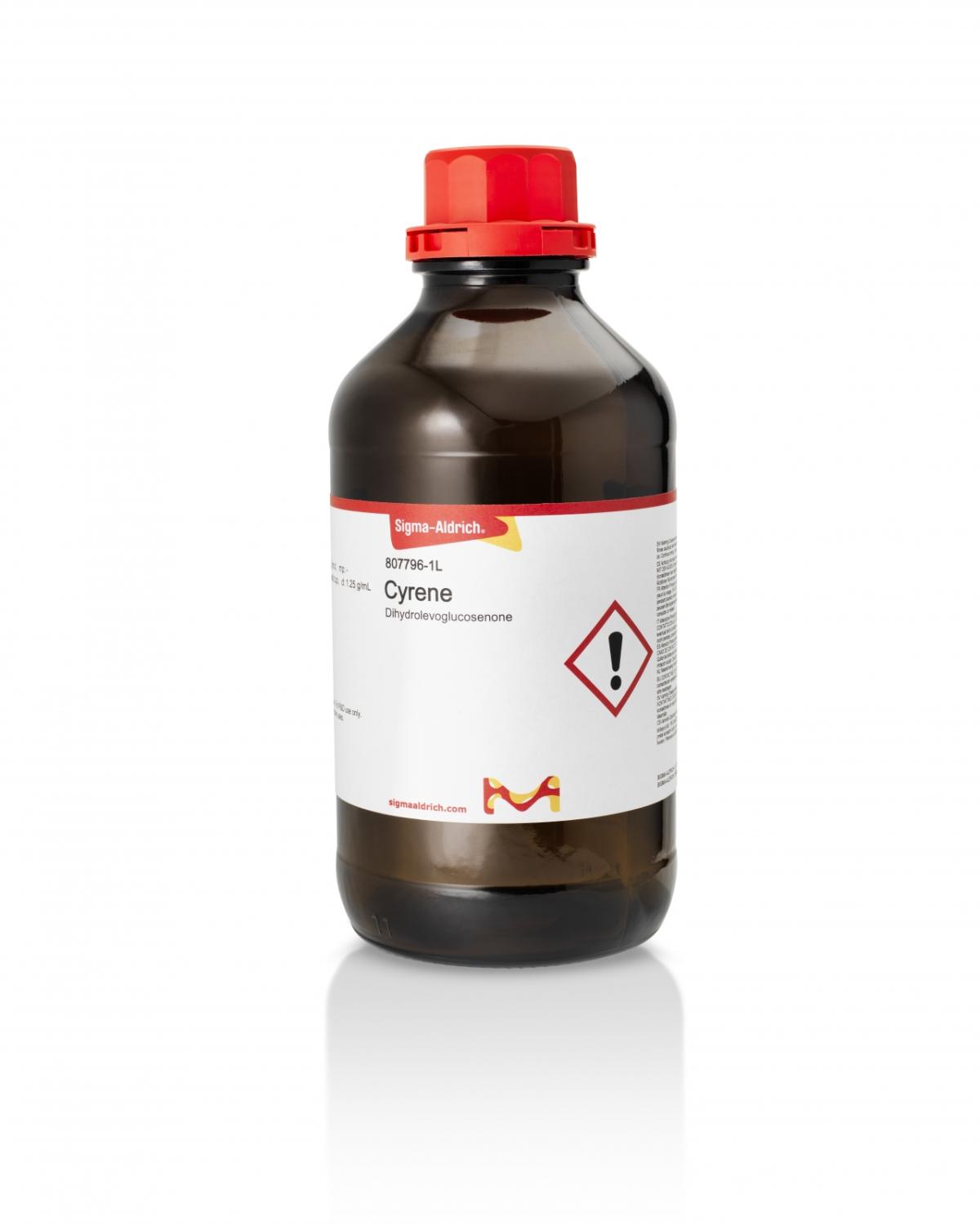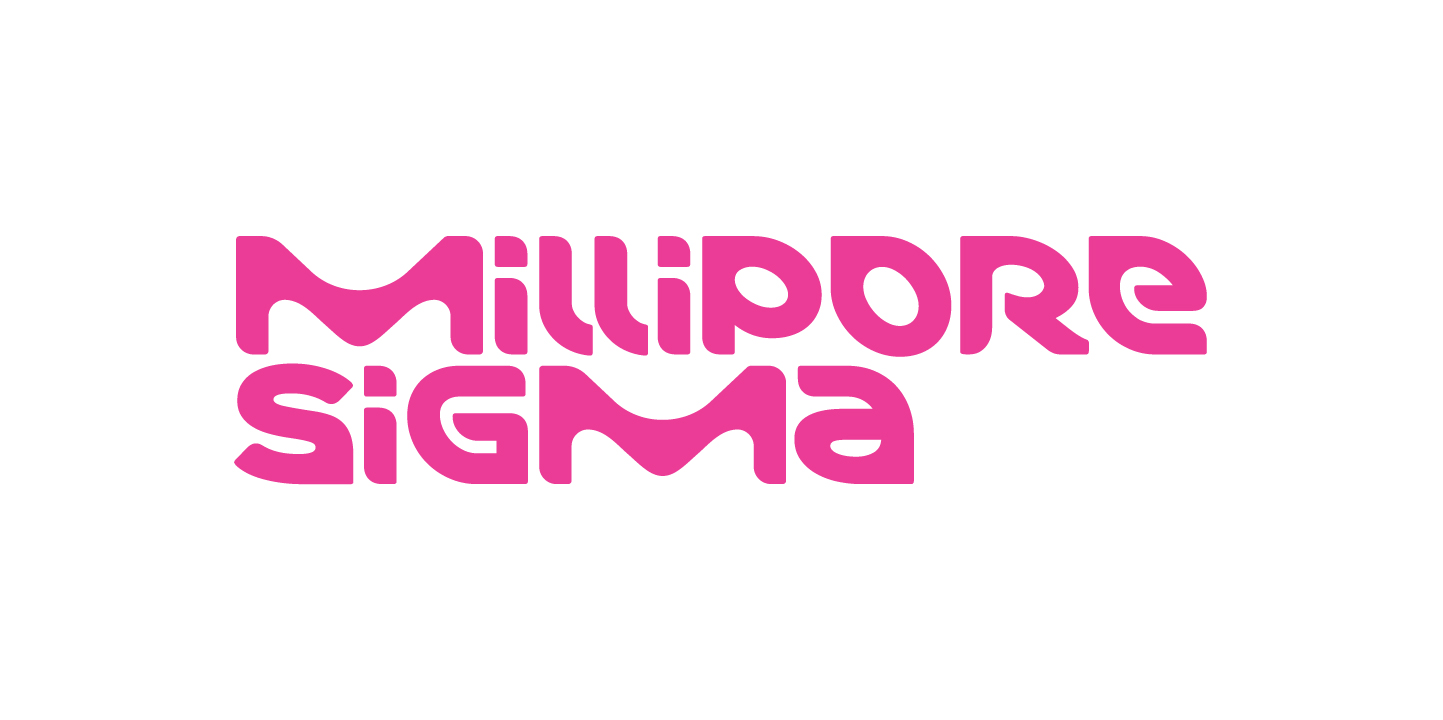MilliporeSigma Introduces New Greener Solvent, Cyrene™
New bio-derived product is a safer, more sustainable alternative for Dimethylformamide and N-Methyl-2-pyrrolidone solvents

BURLINGTON, Mass., April 24, 2019 /3BL Media/— MilliporeSigma today launched Cyrene™ — a sustainable dipolar aprotic solvent, produced in two steps from a renewable cellulose source. The bio-derived alternative was created in response to the need for solvents to meet stricter regulation requirements for both employee safety and environmental sustainability. The new product targets the rising demand for greener alternatives to Dimethylformamide (DMF) and N-Methyl-2-pyrrolidone (NMP).
“With a strong focus on green chemistry, MilliporeSigma is dedicated to providing today’s scientists with innovative solutions to help solve environmental challenges before us,” said Klaus Bischoff, head of Research Solutions, MilliporeSigma. “As a greener alternative, Cyrene™ solvent allows our customers to improve the safety of their processes and reduce the environmental impact of their research and manufacturing — without compromising performance.”
MilliporeSigma uses the 12 Principles of Green Chemistry that were developed and published by thought leaders Paul T. Anastas and John C. Warner in 1991 as a framework for its Green Chemistry practice.
DMF and NMP are under increasing regulatory restrictions, with both being classified by the European Union’s Registration, Evaluation, Authorization and Restriction of Chemicals (REACH) as substances of very high concern. More recently, according to the European Union, the European Commission added NMP to the restricted substances list known as REACH Annex XVII — driving the demand for alternatives. Additionally, effective May 2020, consumer products containing more than 0.3 percent NMP will be prohibited in the European Union. Initial studies and testing have found Cyrene™ solvent to be a more sustainable, safer option when compared with DMF and NMP.
Cyrene™ solvent was developed as a result of a partnership between the University of York’s Green Chemistry Centre of Excellence (GCCE) and Circa Group. Utilizing its expertise in green chemistry, the University of York’s GCCE worked to determine potential applications for the Cyrene™ solvent.
“Cyrene™ solvent actually outperformed the solvent we currently use for manufacturing graphene — providing us with both a sustainable and more effective option to traditional solvents,” said James Clark, professor, University of York and director, Green Chemistry Centre of Excellence.
MilliporeSigma also researched alternate uses of Cyrene™ solvent in mild and robust Sonogashira cross-couplings, a common reaction used in medicinal chemistry, with Professor Allan Watson’s group at the University of St. Andrews, United Kingdom.
“It was important for us to find a safer alternative without sacrificing quality,” said Allan Watson, reader in Homogeneous Catalysis, University of St. Andrews. “Through our research, we found that Cyrene™ solvent features similar physical properties to those of DMF and other dipolar aprotic solvents, while enabling medicinal chemists to execute a more sustainable chemical synthesis."
Cyrene™ solvent was also substituted for DMF in amide couplings — a fundamental reaction in drug discovery. By demonstrating that safer, greener alternatives offer superior performance, Cyrene™ solvent was recognized as the Bio-Based Chemical Innovation of the Year at the 2017 European Bio-Based Innovation Awards.
Cyrene™ solvent is available globally. For more information about Cyrene™ and other green chemistry initiatives from MilliporeSigma, visit the Greener Alternatives page here.
Follow MilliporeSigma on Twitter @MilliporeSigma, on Facebook @MilliporeSigma and on LinkedIn.
All Merck KGaA, Darmstadt, Germany news releases are distributed by email at the same time they become available on the EMD Group website. In case you are a resident of the U.S. or Canada please go to www.emdgroup.com/subscribe to register again for your online subscription of this service as our newly introduced geo-targeting requires new links in the email. You may later change your selection or discontinue this service.
About the Corporate Responsibility Efforts of the Life Science Business of Merck KGaA, Darmstadt, Germany
Through its corporate responsibility initiatives, the Life Science business of Merck KGaA, Darmstadt, Germany, which operates as MilliporeSigma in the U.S. and Canada, harnesses the collective expertise, passion and energy of employees to minimize its environmental footprint and positively impact communities around the world.
The Life Science business of Merck KGaA, Darmstadt, Germany is uniquely positioned to solve the toughest problems in life science through its efforts aligned with strengths in research, innovation and collaboration with the global scientific community. This helps differentiate its business and provides a competitive edge for its customers, while accelerating access to health for people everywhere. The Life Science business of Merck KGaA, Darmstadt Germany demonstrates its commitment to corporate responsibility through extensive programs in three main areas: Greener Products and Solutions—which includes Design for Sustainability, Green Chemistry, Packaging and Recycling initiatives; Employee and Community Engagement; and Sustainable Operations.
About the Life Science Business of Merck KGaA, Darmstadt, Germany
The Life Science business of Merck KGaA, Darmstadt, Germany, which operates as MilliporeSigma in the U.S. and Canada, has approximately 21,000 employees and 60 manufacturing sites worldwide, with a portfolio of more than 300,000 products enabling scientific discovery. Udit Batra is the global chief executive officer of MilliporeSigma.
Merck KGaA, Darmstadt, Germany completed its $17 billion acquisition of Sigma-Aldrich in November 2015, creating a leader in the $125 billion global life science industry.
Merck KGaA, Darmstadt, Germany, a leading science and technology company, operates across healthcare, life science and performance materials. Around 51,000 employees work to make a positive difference to millions of people’s lives every day by creating more joyful and sustainable ways to live. From advancing gene-editing technologies and discovering unique ways to treat the most challenging diseases to enabling the intelligence of devices – the company is everywhere. In 2018, Merck KGaA, Darmstadt, Germany generated sales of €14.8 billion in 66 countries.
The company holds the global rights to the name and trademark “Merck” internationally. The only exceptions are the United States and Canada, where the business sectors of Merck KGaA, Darmstadt, Germany operate as EMD Serono in healthcare, MilliporeSigma in life science, and EMD Performance Materials. Since its founding 1668, scientific exploration and responsible entrepreneurship have been key to the company’s technological and scientific advances. To this day, the founding family remains the majority owner of the publicly listed company. For more information about Merck, KGaA, Darmstadt, Germany, visit www.emdgroup.com.

